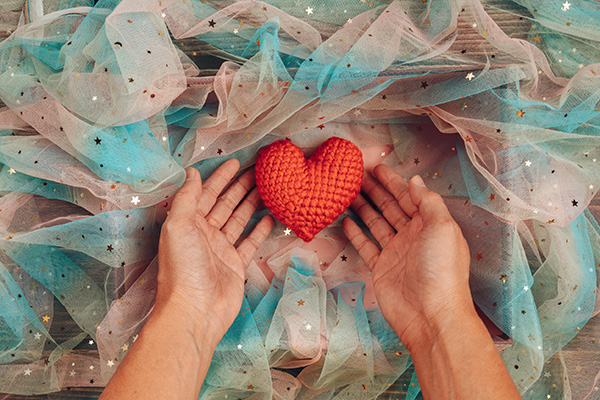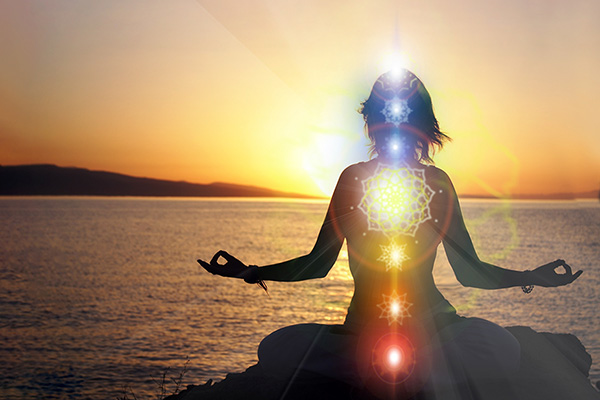judgment
The Spiritual Importance Of Releasing Resentments
 I went out for lunch today and had a bad service experience with the waitress. It was as if she didn’t care much to listen to what I wanted. She seemed distracted and careless.
I went out for lunch today and had a bad service experience with the waitress. It was as if she didn’t care much to listen to what I wanted. She seemed distracted and careless.
Two and a half months ago, I had a similar experience at another restaurant when the server packed the wrong items for me to take home. I felt ignored, even disrespected. Today’s experience brought back the same feelings and memories.
I was so upset that I decided I was not going to leave her a tip. But then, in the middle of my meal, while feeling angry and somewhat sorry for myself, I overheard a nearby customer calling her friend by the same name as my late mother.
This caused me to pause and reflect on my toxic thoughts about the careless waitress. You see, my mother was also a waitress many years ago. It was how she put food on the table and put us through school.
Perhaps today’s events were meant to remind me during the holiday season how many of us go through life with unhealed “mother wounds.”
Spirit now had my attention and proceeded to make me aware that my waitress had her own issues with her mother growing up, and that she is now a single mother herself, barely making ends meet. This realization instantly changed my perspective and my petulant attitude.
Embrace Your Personal Power In Relationships
 Our relationships have great power and influence in our lives. In particular, many of us spend countless hours pursuing love and romance. Then, once we are in a relationship, we spend even more time and energy thinking about it, confiding in friends about it…often trying to make the relationship different or better.
Our relationships have great power and influence in our lives. In particular, many of us spend countless hours pursuing love and romance. Then, once we are in a relationship, we spend even more time and energy thinking about it, confiding in friends about it…often trying to make the relationship different or better.
I deal with this almost daily as I have counseled hundreds of lovesick, frustrated, and heartbroken clients over the years.
“If only he would do what I want, things would be different,” some of my clients might say. “If only he would be more open and honest, maybe I could trust him more.” Truth be told, I have heard similar words come out of my own mouth about my own relationships more times than I care to admit!
Unfortunately, instead of successfully influencing our partner’s words or behavior, we are often left feeling disappointed, betrayed, frustrated, powerless, or out of control. It is draining, pointless, and definitely not the best use of one’s time and energy.
So how do we change it? How do we take emotional control of our life and our relationships? The answer is shockingly simple.
It is all about taking a different, broader perspective on relationships and what they are here to teach us. A quote from Unity Church’s Daily Word magazine perfectly captures this shift in perspective: “Through our relationships with one another, we express the power, presence and love of God.”
Comparison Poisons The Heart, Mind And Soul
 When we are going through difficult times, we tend to compare our struggles and suffering to the lives of others and measure ourselves by their perceived happiness, joy and success.
When we are going through difficult times, we tend to compare our struggles and suffering to the lives of others and measure ourselves by their perceived happiness, joy and success.
We often do this these days by comparing our own lives to what others post on social media. Then we judge and mentally torture ourselves for not living up to other people’s highlight reels of happiness and good fortune.
Sure, it is sometimes beneficial to self-reflect and strive for more based on the examples of others who serve as our role models. However, when we indiscriminately compare our own life journey to everyone else’s, we end up diminishing our own uniqueness and value.
While social comparison can motivate us to improve and grow, it can also lead to toxic self-judgment, envy, resentment, and extreme unhappiness. Constantly focusing on the highlights of other people’s lives quickly becomes toxic and self-destructive.
However, this tendency is not a character flaw in some of us. In fact, it is a natural evolutionary instinct that we all have. Our ancestors survived by living in social groups. Our tendency to compare ourselves to others is therefore a very common human trait, rooted in our evolution as a species.
Spiritual Growth Without Judgment Or Guilt
 I recently had a nasty fight with my ex-husband that was definitely not in line with the spiritual values and principles I teach my clients. Afterwards, I felt very defeated and disappointed in myself for not practicing what I preach.
I recently had a nasty fight with my ex-husband that was definitely not in line with the spiritual values and principles I teach my clients. Afterwards, I felt very defeated and disappointed in myself for not practicing what I preach.
But then Spirit whispered in my ear.
“It’s okay not to be perfect all the time. Sometimes you need to let the toxic air out of your human ego balloon.”
Upon further reflection, I was reminded that we are all spirit beings in human form, which automatically means we are limited and fallible. No one is perfect in this world.
After all, we have signed up for a very challenging physical adventure in this lifetime, which means we all have problems from time to time and we all make mistakes. That is how we learn and grow. In fact, one of the least spiritual things we can do is pretend we’re perfect.
Sometimes we need to let off steam by releasing pent-up negative energies that tend to build up in our auras as we navigate the ups and downs and many frustrations of our daily human existence. Yes, indeed, there are times when we need to go ahead and just beat the heck out of our ego piñata to get rid of some bad juju! When we release these unwanted energies, we detoxify our energy field to live a more abundant and fulfilling life.
Surround Yourself With Divine Love
 Love is a concept I encounter every day in my work, and it is indeed a multifaceted thing. In its purest form, it manifests itself as a mother’s love for her child, a partner’s love for his spouse, or a sibling’s love for a brother or sister.
Love is a concept I encounter every day in my work, and it is indeed a multifaceted thing. In its purest form, it manifests itself as a mother’s love for her child, a partner’s love for his spouse, or a sibling’s love for a brother or sister.
But love also takes more subtle forms. It can be reflected in a teacher’s love for expanding young minds, a researcher’s desire to advance humanity, or an engineer’s fine attention to detail.
There are also negative, toxic forms of ‘love.’ Too much love, though usually well-intentioned, can be harmful. The hovering parent, the controlling spouse, the overprotective friend can stifle true growth, trust, and creativity.
Sometimes conditional love is traded like a commodity or used as a weapon. It can be withheld when behavior is perceived as lacking or used as a reward for conforming to the status quo.
Fake love is also used as a facade or camouflage. The world is full of negative energy and hidden agendas disguised as projects of love that are supposed to be “for the greater good.”
Sometimes love turns into distractions, such as self-centered schemes that are really based on greed. Some people who profess love in truth worship false praise, accolades, and self-enrichment.
Spirit invites us to abandon the charade of false love. Instead, we should strive to be kind, compassionate, and generous without expecting anything in return. We must give others the benefit of the doubt without judging their worth or intent. Each day we should step forward and ask, “How can I help?” instead of making negative assumptions. Spiritual people lead by example. We must show the world the divine beings we are inside.
The Golden Power Of Silence
 I took my early morning walk today along a path surrounded by an olive grove on one side and almond trees on the other. In the background the beautiful hills seemed mystical in the early morning mist.
I took my early morning walk today along a path surrounded by an olive grove on one side and almond trees on the other. In the background the beautiful hills seemed mystical in the early morning mist.
The only sounds that broke the silence at this early hour were the chirping of birds and the bleating of baby goats playing on the small farm opposite my house. Occasionally they were interrupted by their father, who seemed to keep them safe by nudging them into a particular corner of the property.
In these moments of peaceful silence I like to have a dialogue with spirit to receive some guidance or direction for the day, as well as answers to questions I may have about my life and work. But today I felt guided to simply contemplate the meaning of silence.
There are many forms of silence, some less peaceful than others. For example, there are the ‘elephant in the room’ or ‘cold shoulder’ moments of silence when there is awkwardness between people. There is also the ‘poker face’ silence, when someone pretends to listen, but in reality has mentally withdrawn from the conversation. We also fall silent when we are perplexed or confused. Sometimes we keep silent to avoid possible misunderstandings.
A very powerful form of silence occurs when we are deeply engaged in an activity, alone or with others. Everything else seems to fade away as we concentrate on the task at hand.
And of course the best kind of silence is when we are in communion with spirit and the cosmos. In these moments we feel completely at peace and connected to others and the universe. This silence nourishes the soul and gives rise to divine inspiration and spiritual insight.
